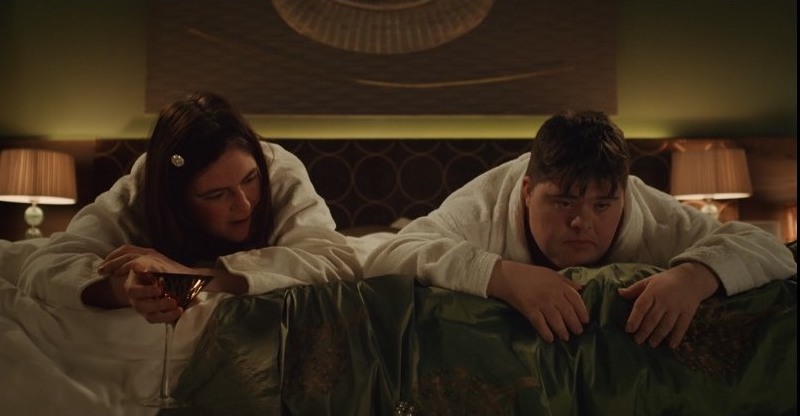Cinema has a soft spot for the disabled, or at least those with worthy and theatrically resonant types of disabilities, ones that can be overcome in three acts, and leave able-bodied audiences feeling good about abstractions like “the human spirit”. Actors are lauded as “brave” for embracing physical and verbal contortions: Dustin Hoffman in Rain Man; Eddie Redmayne’s Oscar for The Theory of Everything; and, last year, Andrew Garfield’s polio quadriplegic in Andy Serkis’ Breathe. Meanwhile, television is opening itself up to richer representations of those on the Asperger’s spectrum.
But a feature film with an ensemble cast, all of whom have developmental disabilities, including a lead with Down’s Syndrome? That’s something new.
Irish indie Sanctuary grew out of a play of the same name, written by Galway-based playwright Christian O’Reilly and performed by the Blue Teapot Theatre Company, an acting troupe of people with intellectual disabilities. For the film, O’Reilly writes, the actors reprise their roles, and TV writer Len Collin directs.
It’s essentially a one crazy-day story, built around a day centre trip to a Galway city cinema, where their caregiver Tom (Robert Doherty) tries to keep a lid on a jaunt that spirals out of control. Larry (Kieran Coppinger), who has Down’s, and Sophie (Charlene Kelly), who suffers from epilepsy and a permanent tremor, sneak off to enjoy a rare afternoon by themselves, in a hotel room rendezvous organised by Tom for a greased palm. The others go to the pub, or wander to the shopping centre, or sit tight with their popcorn and flirt in the dark.
Tom is happy to help Larry and Sophie have some alone time, but is thrown when Larry asks about condoms. The Irish law regards persons with Down’s and other developmental impairments as being unable to make sound decisions and thus give consent, so treats sex with them as a form of rape, a paternalism meant to guard against exploitation by the neuro-typical.
‘You never think of them like that — of having urges’, comments Claire, a front desk clerk at the hotel providing Larry and Sophie with the titular safe space, and Tom admits he pictured them just holding hands and watching TV, like cute characters from a children’s book. Larry and Sophie want eachother, and they want the dignity that comes with being considered a whole person, one trusted to deal with the indignities that come with actually fancying someone.
Often, responses to a film like this coach its specifics inside universal lessons about love, desire and separation, but part of what makes Sanctuary so interesting and innovative is its comfort with difference. There is an alienating, compelling quality to the exchanges, to characters who don’t speak in cinema’s default verbal register. Personalities shine through in their native timbre, bringing credibility to the desires and resentments the story is interested in.
Only at one point — a shopping centre odyssey which ends in two of the group blinging up — does the film cutesify its characters in a way that doesn’t work tonally. But mostly it keeps the dialogue light and conversational, everyday banter between the group. The larks, fun as they are, have a sting in their tale, as the gap between what Larry and Sophie want and what is possible gets wider and wider, and a sense of collective panic sets in. Tidy rom-com resolutions are, it seems, only but one of the privileges enjoyed by the neuro-typical. Conor Smyth
Sanctuary is screening in Queen’s Film Theatre until Thursday 4th January.





